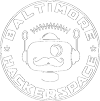Netduino Début with Color Sensor
Over the last few weeks Harford Hackerspace has had the pleasure of beta testing the Netduino. The Netduino is a development board with a form factor similar to the Arduino. Care was taken when designing the Netduino to ensure compatibility with most of the existing Arduino shields. That’s about where the similarities of the two devices ends.
The Netduino uses Microsoft’s Open Source .net Micro Framework SDK along with Visual Studio C# (or VS C# Express) as the primary development environment. C# application developers will be able to quickly adapt to the .net Micro Framework and start programming microcontrollers in a matter of minutes. However, this does not let them off the hook for learning the basics of electronics.
Read more










